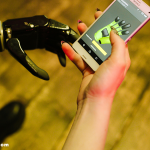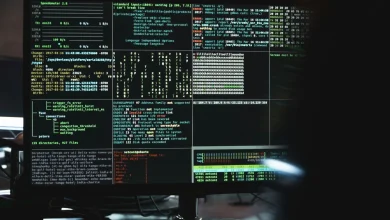
The rise of artificial intelligence (AI) has revolutionized industries across the globe. From customer service to logistics and healthcare to finance, machines are doing what humans once did—only faster and, often, better. While this technological advancement is exciting, it also raises a very real concern: What happens to the jobs? Are we headed for a future where human labor is obsolete?
If you’ve been wondering how to secure your place in an AI-powered world, you’re not alone. In this blog post, we explore how AI is impacting jobs and, more importantly, what you can do to stay relevant, employable, and future-proof in the digital age.
How AI Is Changing the Job Market
AI is not just a buzzword; it’s a game-changer. Tools like ChatGPT, Midjourney, and DALL•E are enabling automation in creative fields, while robotic process automation (RPA) is transforming repetitive tasks in administration and finance. Here’s how AI is reshaping the landscape:
1.Automation of Repetitive Tasks: Jobs that involve routine tasks, such as data entry, customer support, and even basic accounting, are increasingly being handled by AI systems.
2.Emergence of New Roles: While some jobs are disappearing, new ones are emerging—AI trainers, prompt engineers, data ethicists, and machine learning operations (Mops) professionals.
3.Upskilling Requirements: The bar for employment is rising. Basic computer literacy is no longer enough; employees now need digital fluency, critical thinking, and adaptability.
4.Hybrid Work Models: AI supports remote work through automation, scheduling, and collaboration tools, making flexibility a key feature of modern jobs.
READ MORE >> AI-Powered Everything: How Artificial Intelligence Is Rewiring Everyday Life in 2025
Industries Most Affected by AI
> Manufacturing: Automated assembly lines and robotic systems have replaced many manual jobs.
> Transportation: Self-driving technology is beginning to reduce the need for drivers.
> Retail: AI is powering cashier-less stores and personalized shopping experiences.
> Healthcare: AI systems can analyze scans and medical data faster than human professionals.
> Education: AI tutors and personalized learning platforms are being introduced in classrooms.
Jobs at Risk vs. Jobs in Demand
At Risk:
Data Entry Clerks
Telemarketers
Routine Factory Workers
Bank Tellers
Basic Content Writers
In Demand:
AI/ML Engineers
Cybersecurity Experts
Data Scientists
Digital Marketing Specialists
Software Developers
What You Can Do to Stay Relevant
1.Learn New Skills: Take online courses in AI, machine learning, data analytics, or any field relevant to your industry. Platforms like Coursera, Udemy, and edX offer affordable options.
2.Develop Soft Skills: Critical thinking, emotional intelligence, creativity, and communication are harder for AI to replicate.
3.Get Certified: Certifications like Google Data Analytics, AWS Cloud Practitioner, and Microsoft Azure Fundamentals add credibility.
4.Stay Informed: Follow tech news, attend webinars, and join professional forums to keep up with trends.
5.Network: Connect with people in your industry to find opportunities and stay in the loop.
6.Be Flexible: Adapt to changes and be willing to shift roles or industries as needed.
Tools That Can Help You Prepare for the Future
ChatGPT—Improve your writing, research, and idea generation.
Grammarly—Enhance your communication skills.
Kaggle—Practice data science with real-world problems.
LinkedIn Learning—Stay current with trending skills.
Notion or Trello—Improve your productivity and project management.
Conclusion
AI is not going away—it’s accelerating. But that doesn’t mean the end of human employment. Instead, it’s a call to evolve. Those who are proactive about upskilling, adaptable in their careers, and committed to lifelong learning will not just survive in the AI era—they will thrive.
So don’t fear the robot revolution. Prepare for it. Because the future of work isn’t about competing with machines; it’s about working alongside them.
Frequently Asked Questions (FAQs), according to my experience:
READ MORE >> 10 Mind-Blowing Tech Trends Dominating the World in 2025
1. Will AI take away all jobs? No, AI will automate certain tasks, but it will also create new roles that never existed before.
2. What jobs are safest from AI? Creative, strategic, and emotionally intelligent roles like therapists, teachers, and leaders are less likely to be replaced by AI.
3. How can I start learning AI-related skills? You can start with free courses on Coursera, edX, YouTube tutorials, and AI-specific platforms like Fast.ai.
4. Is it too late to switch careers into tech? Not at all. Many people have transitioned into tech careers in their 30s, 40s, or even later. The key is consistent learning and practice.
5. How can I make my job AI-proof? Focus on roles that require human judgment, creativity, or emotional connection. Also, continuously upskill and adapt.









Very nice Article
Thank you so Much, You’re very welcome!